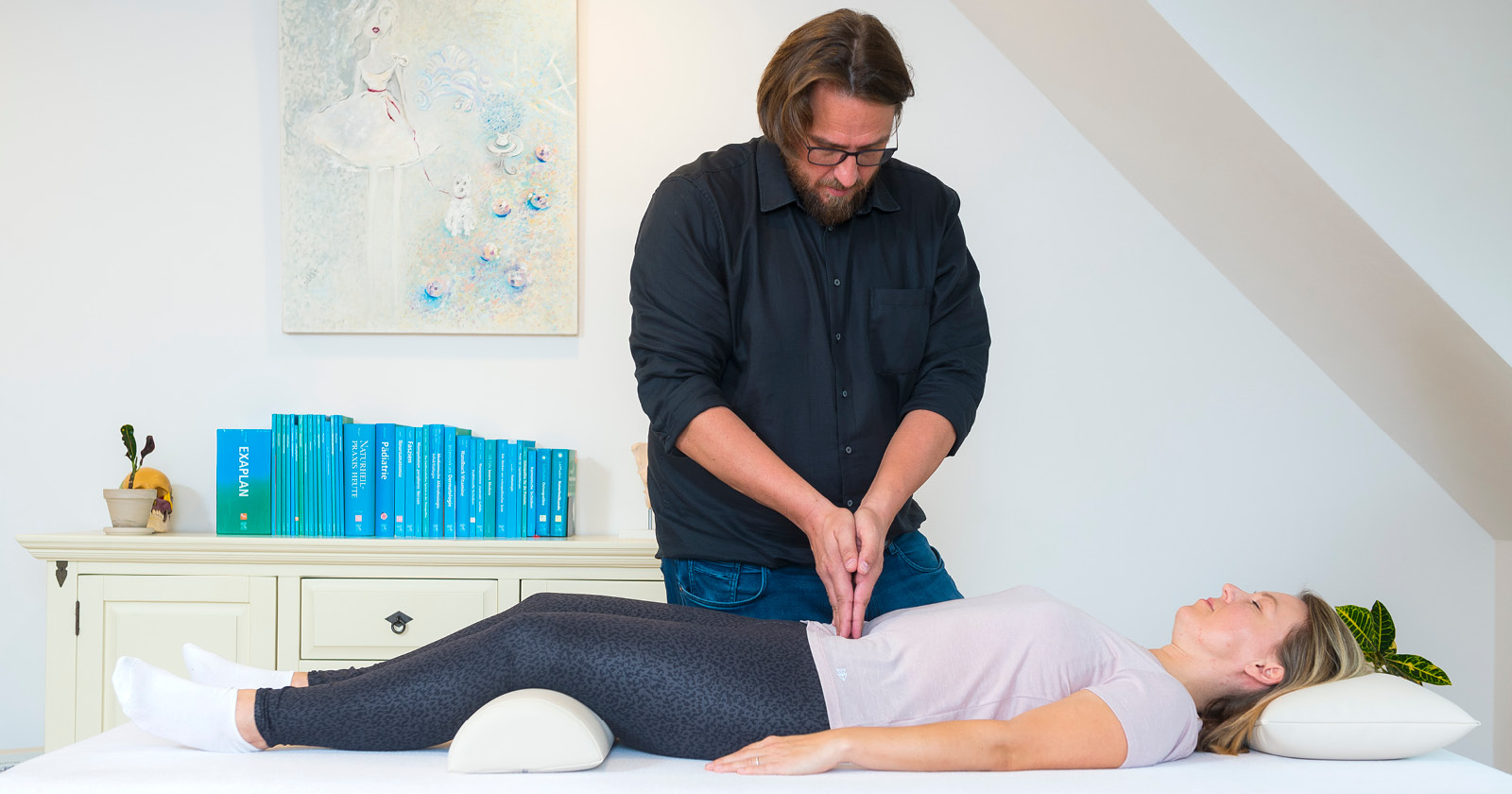Specialization in Gynecology
“Menstrual pain is normal,”
“Pain during sex is normal.”
NO, it’s not “normal”!
Through several specific advanced training courses in the field of gynecology and fertility, this has become my area of specialization.
Gynecological osteopathy can be considered a specialized field within osteopathy. In gynecological osteopathy, all gynecological issues are addressed. Using visceral, parietal, and craniosacral techniques, the pelvic organs and their support and supply systems are examined and treated. In certain cases, treatment with very gentle vaginal techniques, called “Touché,” may be appropriate. We will only offer this to you if it makes sense in your particular case.
However, the vaginal technique is recommended only after a comprehensive examination and assessment, when it is expected to result in a significant improvement.
Of course, the use of vaginal techniques in gynecological osteopathy is based on detailed explanation by the osteopath and is documented in an additional treatment contract. The Association of Osteopaths Germany (VOD) provides an information letter about Touché treatment, which you will receive and need to sign before the treatment.
You can take your time to decide whether or not to proceed with Touché treatment. You are welcome to bring a trusted person with you to the treatment, and you can pause or stop the treatment at any time if it becomes uncomfortable. If you do not wish to have Touché treatment, we respect your decision. It’s important that you, as the patient, feel as comfortable and secure as possible during the treatment.
A healthy menstruation, according to textbooks, should be entirely free of complaints, just as sex should be.
The statement, “Since I started taking the pill, I feel fine,” is merely symptom management. It does not address the root cause of the pain, only suppresses it.
From an osteopathic perspective, hormonal balance, arterial, venous, neural, and lymphatic supply to the uterus and ovaries, as well as the positioning of the uterus in the abdominal cavity, play a significant role. The topic of fertility is complex, and in my opinion, there is often a significant emotional aspect that should be considered, in addition to osteopathy, and can be addressed through hypnotherapy if desired.
Furthermore, I have a close collaboration with several gynecologists, especially with several endometriosis centers. There is also an osteopathic approach here, as endometriosis can cause adhesions and pain in the abdomen and back. In such cases, we attempt to release and loosen these adhesions through osteopathy.
Gynecological osteopathic therapy approaches are available for the following conditions (unfortunately, there is still a lack of studies in this area, so this list is based on experiential medicine and in no way constitutes a promise of healing):
- Menstrual problems (abdominal pain, back pain, migraines, heavy or absent menstruation, spotting…)
- Irregular or absent menstrual cycles
- Pain during sex / Low libido
- Vaginismus
- Vulvodynia
- Fertility issues
- Recurrent bladder infections
- Endometriosis
- Polycystic Ovary Syndrome (PCOS)
- Uterine malpositions (flexions, versions, rotations)
You can find detailed videos on the topic of vaginal/internal osteopathic treatment on our YouTube channel “DerGynostepath” and on Osteopathy and Menstruation.
You are welcome to schedule an appointment for gynecological osteopathy with Mr. Hopfner, as well as with our osteopaths, Mrs. Patricia Krall and Mrs.Sophia Ismaier.
If you have any questions, please feel free to contact me or the VOD!
Important Note: The treatment methods used in my practice are derived from experiential medicine. Most of these established medical therapy methods have not yet been scientifically validated according to the principles of evidence-based medicine (conventional medicine). In particular, there are still no randomized, controlled studies or comprehensive meta-analyses. Success in experiential medical therapy forms cannot be guaranteed in every case.
